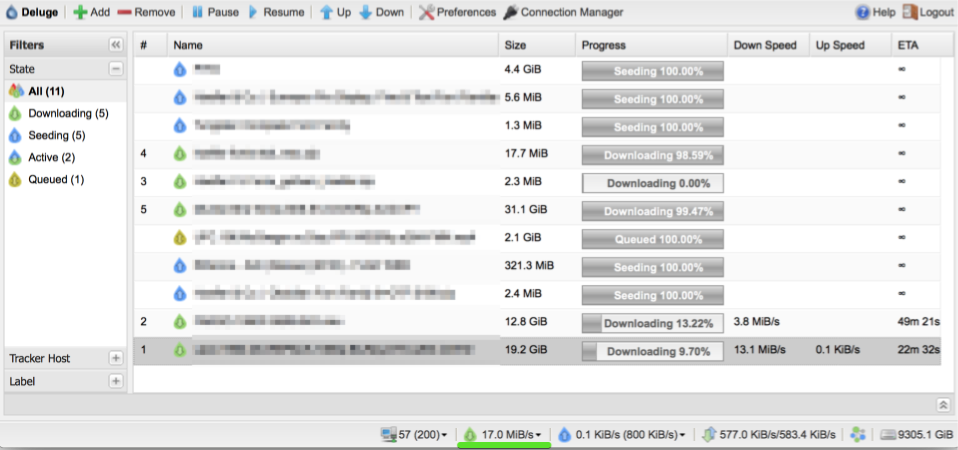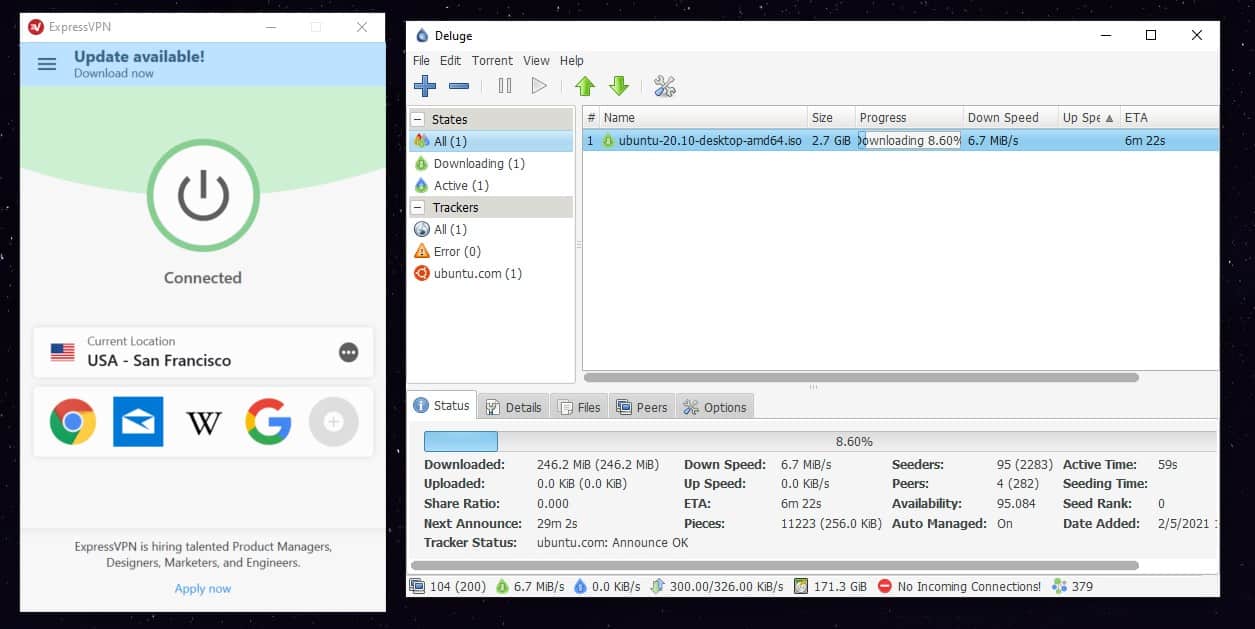
With an alternate routing table already set up (on -1) you can start Deluge daemon with: This requires recompiling the kernel with this option enabled (See this blog post for details). Scripts for a basic setup can be found at the deluge-vpn repo.įreeBSD supports multiple routing tables in the kernel, which enables a process to be started with a custom default routing table.

I apologize for adding to the mess and I hope that I just missed something minor. I turned on STRICT_PORT_FORWARDING, no luck, turn it off, checked my credentials, and to make sure they're not over 99 characters, and I'm still stuck. I keep getting the old "DEPRECATED OPTION: -cipher set to 'aes-256-gcm' but missing in -data-ciphers (AES-256-GCM:AES-128-GCM)." warning so I went through question 22 in the FAQ and made my ovpn file look like this: I'm sorry to add to the deluge of comment, but I've been pulling my hair out trying to get DelugeVPN to work after I updated Unraid to 6.8.3. I found the virtual ip in the Wireguard VPN settings in Unraid, added that to LAN_NETWORK and BOOM! I have access to DelugeVPN again remotely.ġ Container issue down, NOW to get Deemix working. I disconnected my laptop from my home network, turned off my phone's wifi, enabled my phone's hotspot, and then connected to that hotspot from my laptop. Okay, I think that worked!!! Thank you so much!!! This was well over a month of hairpulling and combing your FAQs and multiple docker pulls and reconfigs! Probably there is some confusion happening with which client/server to connect to which is leading to the issue, as you have in essence a wireguard server running (unraid) and a wireguard client running (delugevpn) and then you have your laptop connecting (wireguard client), but before we go jumping to conclusions thats its not possible i would first look at lan_network and see if that fixes it.įor the record, i have NOT tested this in the above configuration, but i do use a traditional port forward and this works just fine with wireguard and openvpn client. That should then allow you to connect and use the deluge ui over a vpn tunnel. Ok what you are missing here is that when you create a vpn tunnel from your laptop to your unraid server this will create a new network, this network will be different to your lan network of 192.168.1.x, i cant tell you what it is, as it could be set to anything, but you need to figure out what its configured to, then add this additional network to the setting for LAN_NETWORK using a comma to separate the networks, e.g.:. Need to add your virtual IP (VPN subnet) to your LAN_NETWORK variable.

It's just that I cannot access the WebGUI when I'm remote despite being able to access all other containers, again only when I switched to PIA wireguard for DelugeVPN. I know it's running, things are downloading and uploading. If I switch DelugeVPN back to PIA openvpn I can access DelugeVPN WebGUI just fine and as I mentioned above, I can access the DelugeVPN WebGUI at home locally just fine no matter. I used to be able to access DelugeVPN the same way (192.168.1.x:8112) but not since upgrading DelugeVPN to PIA wireguard. If I want to access a container I browse to the appropriate port (192.168.1.x:8181). When connected I can access all my IPs as if I am local (access my Unraid server with (192.168.1.x). I have the Wireguard client on my laptop (and phone for emergencies) to have a VPN tunnel into my Unraid server when I'm away. I typically use a laptop when I'm away from home and have Wireguard that is built in to Unraid setup.


 0 kommentar(er)
0 kommentar(er)
